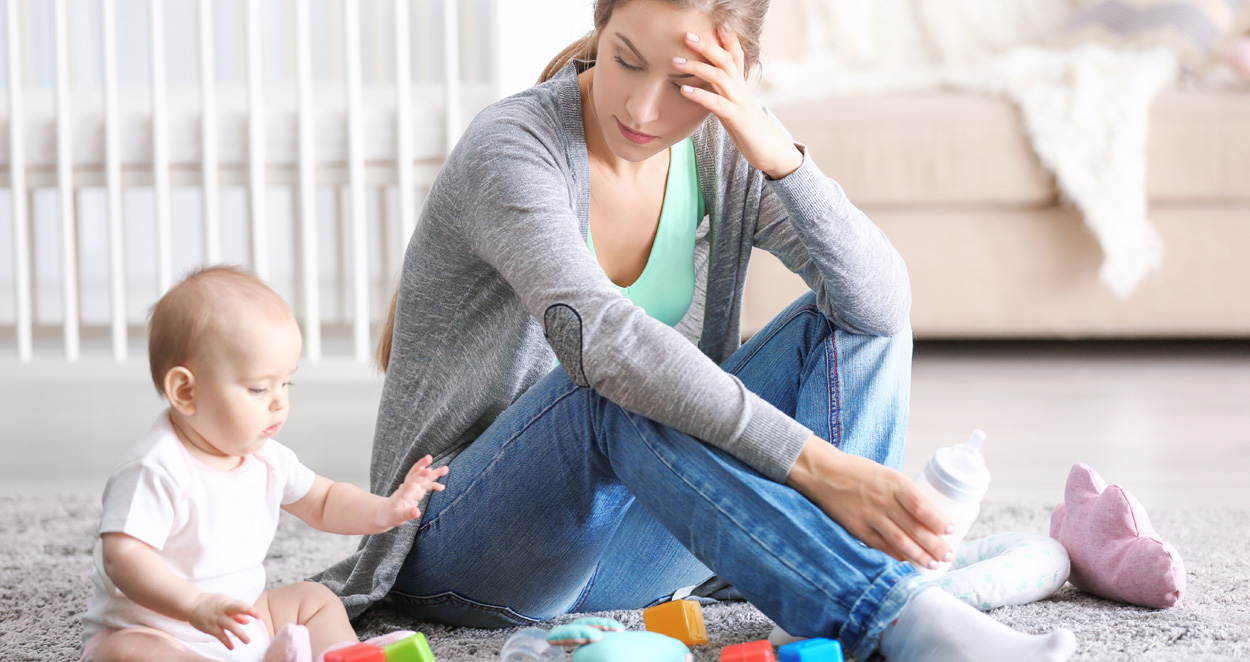Postnatal depression

17 Jul 2020
Even if you’re happy about becoming a mother, having a baby may still feel like a change that you’re not quite prepared for. You may feel overwhelmed and powerless, as though you’re not ready to handle your new life. This is all completely normal; the problem comes in when these feelings don’t seem to go away and they turn into postnatal depression. But help is always at hand, and these difficult feelings are nothing to be ashamed of.
According to the South African Depression and Anxiety Group, there are three types of postnatal (also known as postpartum) depression:
- Postpartum blues: This is when a new mom feels weepy and irritable, and can last several days. It’s a fairly common type of postnatal depression, and affects about 70% of women during the first week after delivery. It usually goes away, and, more often than not, all mom needs is some downtime and support.
- Postpartum psychosis: This is a serious condition, when the irritability and weepiness quickly changes into mental confusion, hyperactivity, hallucinations and, occasionally, threatening behaviour towards the baby. Postpartum psychosis is rare but if a new mom shows symptoms she needs to see a doctor immediately, and she may need to spend time in a hospital to recover.
- Postpartum depression: This usually begins in the first three months after birth, and is quite common (between 10 and 15% of new moms will suffer from postpartum depression). Symptoms included crying, irritability, apathy, anxiety, lack of appetite, insomnia, and highly impaired concentration and decision-making. If symptoms go on for more than two weeks it’s best to consult a mental health practitioner, as it can lead to more serious issues like difficulty bonding with baby, a lack of confidence, and an inability to leave the house. Some moms may even begin to worry that they might hurt their baby due to intense feelings of frustration and hopelessness.
Having postnatal depression can feel like a huge burden to bear, so it’s very important that a new mom gets help – and the sooner, the better. For some women, it lasts less than two weeks; for others it can go on for months to one year, and for a few women, it may take several years to get back on their feet.
What can you do?
The first step toward improving your situation is to talk about how you feel. Putting your feelings into words will begin to lighten your load. It also makes it easier for those around you to help out.
Start with your partner. The more open you are with each other, the easier it will be to get through this difficult time. Your immediate family and closest friends can also be of great help. As a single parent, you really need other adults with whom you can share your thoughts and feelings.
You may need to see your GP, who will refer you to a councillor or a psychiatrist, and you may need to take medication and/or undergo therapy to help you cope better. Research shows that postnatal depression passes, and that it does so quicker if you get help; so ask for help. There really is nothing to be ashamed of. Remember – help is out there. You're not alone.
If you think you may be suffering from the ‘baby blues’, or something more serious, contact the SADAG Mental Health Line on 011 234 4837; the Cipla WhatsApp Chat Line on 076 882 2775; or Lifeline on 0861 322 322